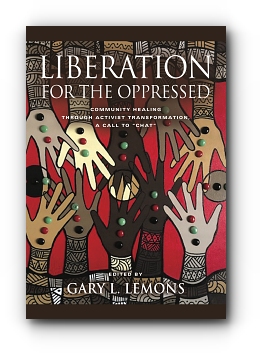| ||||||||||||
| Category: Politics |
(requires Adobe Reader)
|
| About the Book | |
|
Considering the violent and deadly experiences of racism in the United States during this contemporary moment, there remains a critical need for demonstrative dialogues for social justice. Progressive anti-racist allies—across differences of race, gender, class, sexuality, and ability—must continue to join together to enact strategies devoted to the eradication of racism. Ways to advocate life survival for Black Indigenous People of Color in the U.S. must be actively engaged. Particularly related to the emotional and physical trauma BIPOC communities are currently experiencing in this day and time, there must be a renewed call for the vision of a “beloved community.” It must be envisioned by a unified, collective body of people committed to liberation for all the oppressed. In this day and time, anti-racist solidarity means that these individuals must take on challenging conversations about ways systemic and institutionalized racism continues to be perpetuated. In Killing Rage: Ending Racism (1995), published over two decades ago, bell hooks states that “to ‘talk race’”—in and of itself—is a difficult subject. For bell, her reluctance toward speaking publicly about the subject of race and racism is the fact that it “hurts … [it not only] startles, frightens, and is enough to throw one back into silence” (3). Yet, it is clear for hooks that silence is not the solution to the traumatic experience of racism. Writing in Killing Rage: Ending Racism about the complexity her life as a Black woman, a feminist, a professor and cultural critic in PWIs (Predominately White Institutions), she expresses her feelings about the experiences of racism and its intersectional relationship to sexism and classism. In Liberation for the Oppressed, I have conceptualized this book to compel its potential readers—not only to contemplate the “painful,” emotional challenges that the subject of race and racism may provoke, but also to compel them to think about the life-saving power of unity for the creation of a “beloved community,” as envisioned by Dr. Martin Luther King, Jr. In allyship for social justice, progressive individuals (across differences) should support struggles to end racism perpetrated against BIPOC communities. In the conception of this book, I contend with bell hooks that silence about race and racism in the U.S. is hurtful. The mission for Liberation for the Oppressed is boldly to affirm the lives and voices of its contributors. They literally put their lives on the line writing about traumatic experiences each of them has or would face in what it means “to ‘talk race’.” Becoming critically aware of the self-deadening effects of internalized racism, each of them map the course of their personal, political, and professional journey toward self-recovery. Becoming critically aware of the complicity with racism by not speaking out about its traumatic implications, each of them critically employs personal narrative to speak out in loving resistance to racist colonization. Linking the concept of Black feminist intersectionality with interdisciplinary, I employ it as the theoretical foundation for the advocacy of community activism for resistance to all forms of systemic oppression. Liberation for the Oppressed is about representing the power of love for social justice. Each contributor to this book acts to demonstrate the agency of emotional wellbeing and self-recovery needed for all oppressed people. This standpoint lines up with bell hooks' vision of a “Beloved Community: A World Without Racism,” the final chapter of Killing Rage: Ending Racism. I believe the contributors’ writings in Liberation for the Oppressed act to transform the personal, political, and professional lives of those people who will read them—in and outside the "ivory tower".
|
|
| About the Author | |
 |
Gary L. Lemons, PhD is Professor of African American literature, Black feminist-womanist theory/criticism, and biblical studies in the Department of English, University of South Florida. Lemons’ published books include—Black Male Outsider, a Memoir: Teaching as a Pro-Feminist Man; Womanist Forefathers: Frederick Douglass and W.E.B. Du Bois; Feminist Solidarity at the Crossroads: Intersectional Women’s Studies for Transracial Alliance (Co-edited with Kim Marie Vaz); Caught Up in the Spirit: Teaching for Womanist Liberation; Building Womanist Coalitions: Teaching and Writing in the Spirit of Love; Hooked on the Art of Love: bell hooks and My Calling for Soul Work; Let Love Lead: On a Course to Freedom (Co-authored with Scott Neumeister and Susie Hoeller). He is also an ordained minister. |

